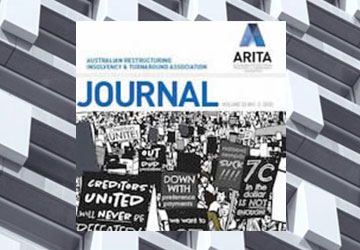First Court of Appeal decision under section 90 and 90A FSMA rejects the Defendant’s strike-out attempt
The Court of Appeal has recently handed down its first judgment in a claim under sections 90 and 90A of the Financial Services and Markets Act 2000 (FSMA)[1] Newey LJ (with whom Phillips and Coulson LJJ agreed) upheld a recent decision by Green J to dismiss Standard Chartered PLC’s attempt to strike out various aspects of the claimants’ case. The Court of Appeal’s decision provides important guidance on pleading dishonesty both in securities fraud claims and in commercial litigation more generally.
Background
The case involves a series of claims brought under section 90 and 90A FSMA against Standard Chartered PLC (SC plc) by various claimants who held interests in securities issued by the company. The claimants’ complaint is that SC plc did not adequately disclose its involvement in both:
- a bribery scheme to bribe Indonesian government and other officials to win or renew contracts or obtain other benefits; and
- the breach of US sanctions against Iran and other sanctioned countries.
As a result of its involvement in these activities, in 2019 SC plc entered into settlements with US and UK authorities pursuant to which it paid fines of $947 million in the US and £102 million in the UK. This was on top of a 2012 settlement with US authorities in connection with failures to comply with US sanctions pursuant to which it had already been fined $227 million.
The claimants claim that because of the disclosure failings, they were not aware of certain risks and have suffered loss. Section 90 establishes liability in relation to misstatements and/or omissions in listing particulars whereas section 90A establishes liability in relation to misstatements and/or omissions, as well as dishonest delay, in financial statements and other published information as defined by paragraph 2 Schedule 10A FSMA.
Key Issues Before the Court
The core issue before the Court of Appeal was whether at first instance Green J was wrong to decline to strike out certain parts of the claimants’ pleadings. SC plc argued that the allegations did not provide a solid evidential foundation for claims of fraud and dishonesty and should be struck out under CPR 3.4(2). Specifically, SC plc focused on three main points:
- The G4S Point[2]: Whether the fact that the Group Executive, whose members are said to be PDMRs, includes persons who are not alleged to be either de jure or de facto directors of SC plc renders the judge’s decision not to strike out wrong.
- The ‘En Bloc’ Point: Whether it was acceptable for the claimants to advance allegations of fraud en bloc against many individuals within the Group Executive without specifying individual roles and responsibilities.
- The Primary Facts Point: Whether the claimants failed to plead primary facts that would support an inference of dishonesty against any of the Group Executive members.
The G4S Point
The argument here revolved around the interpretation of who qualifies as a Person Discharging Managerial Responsibility (PDMR) under section 90A and Schedule 10A of FSMA. According to the G4S Decision, a person cannot be a PDMR unless he or she is a de jure director, a de facto director or (perhaps) a shadow director. SC plc contended that the Group Executive members, as alleged by the claimants, included individuals who did not fit this criterion. However, the claimants countered that they had always intended to include de facto directors within their allegations and offered to amend their pleadings to clarify this point. The Court found that the claimants’ position was sufficiently clear and that the G4S Point did not justify striking out the pleadings.
The ‘En Bloc’ Point
SC plc argued that advancing allegations of fraud against a large group of individuals without specifying each person’s involvement was improper. However, the Court noted that while it is desirable for the claimants to specify individual PDMRs’ roles as soon as possible, the pleadings were not so deficient as to warrant being struck out. The Judge at first instance had found that the claimants had advanced a credible case that members of the Group Executive must have known about the bribery allegations. The Court of Appeal agreed, stating that the claimants’ pleadings, at this stage, were adequate and noting in particular that “what is in the end at issue is the liability of the issuer, not any PDMR, and it may at first be difficult or impossible for a claimant to assess the roles of particular individuals within an issuer”[3]. This may lower the bar slightly for pleading PDMR knowledge.
The Primary Facts Point
The most substantial challenge from SC plc was that the claimants had not pleaded primary facts sufficient to infer dishonesty. SC plc argued that the allegations were more consistent with negligence than with fraud. The Court of Appeal, however, upheld the first instance decision, which found that the claimants had adequately pleaded knowledge of the bribery scheme among SC plc’s senior management. The Court emphasized that the issue at this stage was the sufficiency of the pleadings, not the evidence itself, which would be assessed at trial. The pleadings were considered detailed enough to suggest a credible case that at least one member of the Group Executive was aware of the misconduct.
Court of Appeal’s Conclusion
The Court of Appeal accordingly dismissed the appeal, upholding the first instance decision to allow the claims as pleaded to proceed to trial. The judgment underscores the principle that at the pleading stage, claimants are not required to present all the evidence but must provide a concise statement of the facts that supports their case. The claimants had met this threshold, particularly concerning the allegations of fraud and dishonesty. The Court was satisfied that the claimants had sufficiently particularized their allegations to give fair notice to SC plc of the case it had to meet and that these allegations could proceed to be tested at trial.
Comment
This case highlights the careful balance courts must maintain between ensuring fair notice of serious allegations like fraud is given and not imposing excessively onerous pleading requirements that could unjustly prevent claims from being heard. With the section 90A claim being brought by some of the same investors against Serco Group Plc having recently settled, this case will be one of the next securities cases in England to go to trial. But don’t hold your breath. The case is not listed to start until October 2026, and with a provisional time estimate of 96 days, judgment isn’t expected until late 2027. The Court of Appeal judgment comes 8.5 months after the first instance decision was handed down, suggesting that whilst such procedural challenges can prove costly and ultimately unsuccessful, they still serve a purpose for the defendant of delaying the litigation.
[1] The Persons Identified in Schedule 1 to the Re-amended Particulars of Claim v Standard Chartered PLC [2024] EWCA Civ 674 (Investors v SC Plc) [2] Named after Allianz Global Investors GmbH v G4S Ltd [2022] EWHC 1081 (Ch) (the G4S Decision), where Miles J concluded that, for an issuer which has directors, the only persons “discharging managerial responsibilities [3] Investors v SC Plc, per Newey LJ, at 64.



